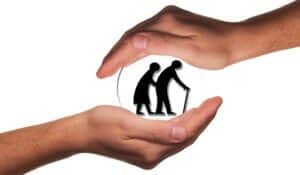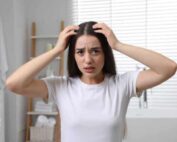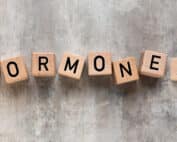 Hormones and aging share a strong connection because hormones are so prevalent in our bodies. Hormones are chemical messengers that help regulate body temperature, maintain a healthy blood pressure, and keep blood sugar levels under control. Not to mention the role they play as we grow older in early childhood — but in this article, we are specifically talking about the older adult aging process.
Hormones and aging share a strong connection because hormones are so prevalent in our bodies. Hormones are chemical messengers that help regulate body temperature, maintain a healthy blood pressure, and keep blood sugar levels under control. Not to mention the role they play as we grow older in early childhood — but in this article, we are specifically talking about the older adult aging process.
As we age, the following hormones in our bodies are known to decline: Dehydroepiandrosterone (DHEA), growth hormone, testosterone, estrogen & progesterone. Several influential organizations have conducted studies that suggest supplementing your body with these hormones can have a positive effect on the aging process.
In other cases, it’s not just the connection between hormones and aging that could cause a deficiency. There are numerous diseases and disorders that could develop at any age which have adverse effects on hormone levels.
In any case, when a hormone deficiency is diagnosed, anything from supplements pills, shots, gels, and medicated skin patches may be prescribed to restore your hormones back to optimal levels. Hormone replacement therapy may also be prescribed if it’s found that you need additional medical assistance beyond what supplements can provide.
Before taking any supplements or undergoing any treatment for hormones and aging it is strongly recommended that you check with your doctor first. When it comes to manipulating hormone levels you should always be under a doctor’s supervision.
In this post, I will go over the various hormones that decline as we get older and how supplements may potentially be used to restore them to optimal levels.
Supplements for Hormones and Aging
Dehydroepiandrosterone (DHEA)
DHEA is made from cholesterol and is produced naturally in the body by the adrenal glands. Natural production of DHEA peaks when most people are in their mid-20s. After which time the levels of this hormone start to gradually decline. DHEA is related to the aging process because it is converted into two of the body’s most important hormones: testosterone and estrogen.
DHEA supplements can be obtained over-the-counter and are often marketed as “anti-aging solutions”. Studies of elderly people show that DHEA can help to build muscle and reduce fat. However, the benefits of supplementing with DHEA have yet to be fully uncovered. Researchers are still working on reaching more definite findings about DHEA’s effects on aging.
Testosterone
Testosterone is produced naturally in the body by the testes and is responsible for regulating sex drive, bone mass, fat distribution, muscle mass, strength, red blood cell production, and sperm production. However, testosterone levels decrease with age. However, there is a wide range between what is considered a normal level of testosterone and which is a low level of testosterone.
It’s unlikely that an older man’s hormone levels will decline to the point of a major shutdown. Similar to what women experience with menopause. Although, men can still benefit from hormone supplementation. There are FDA approved medications that can be prescribed. Therefore, for men who either produce little-to-no testosterone or have a medical condition which restricts the production of testosterone.
Medications, such as patches, injections, or topical gels, can help men with low testosterone levels to maintain strong muscles and bones. After that, increase their sex drive. The benefits of supplementing with testosterone when someone does not have an extreme deficiency are still being studied.
Estrogen & Progesterone
Estrogen and progesterone are produced naturally in the body by a woman’s ovaries before they reach menopause. They are responsible for playing a role in the menstrual cycle and pregnancy. Estrogen can also help to maintain bone strength, prevent heart disease, and stave off memory loss before menopause.
Millions of women have been supplementing with estrogen for over 60 years now. Therefore, to control symptoms of menopause such as hot flashes and vaginal dryness. Prescription estrogen medications are also used to treat the loss of bone strength that women experience after menopause. Estrogen is perhaps the most well-researched hormone mentioned so far in this article. Moreover, with studies concluding that supplementing with estrogen after menopause has many key benefits.
Studies published in PNAS and in Biological Psychiatry found strong evidence that menopause may actually accelerate aging in women and hormone replacement therapy slowed aging down.
Sleep is important as a lack of sleep can also accelerate aging. Oral bioidentical progesterone can allow women to have a good night’s sleep as well as decrease coronary artery spasms.
Conclusion
There’s no doubt about the link between hormones and aging. If you believe you’re experiencing the effects of a hormone deficiency please contact me for an assessment right away. Together we’ll find out if hormone replacement therapy or anti-aging medicine is right for you.





She is a recognized and award-winning holistic, functional, integrative and anti-aging healthcare practitioner, speaker and author, and has been featured in ABC News, Forbes, WOR Radio and many media outlets to spread the word that you can live younger and healthier at any age.